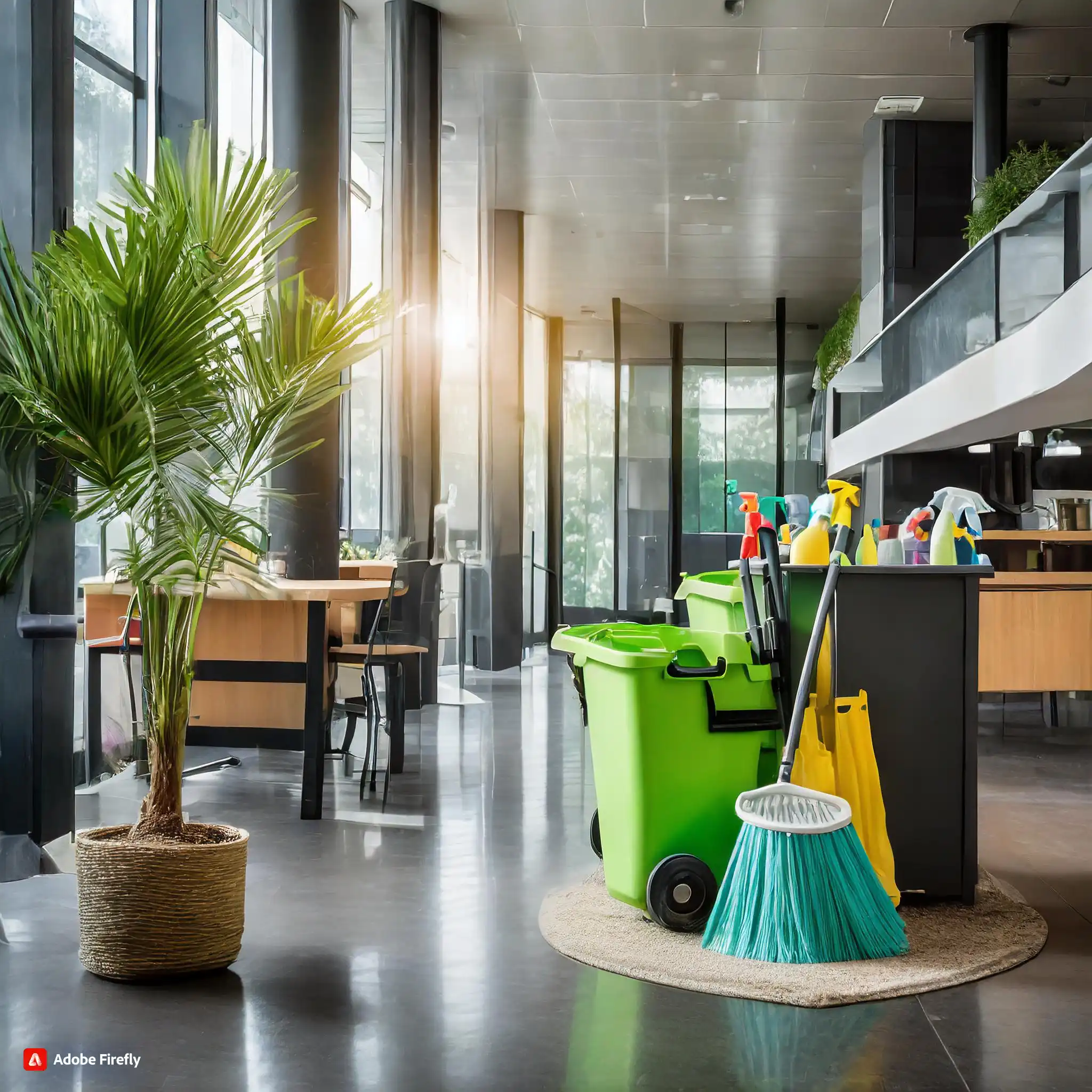Concrete and Stone Care, Hard Floor Care
What is Non-Buffable Floor Finish?
Non-Buffable Floor Finishes represent a category of exceptionally hard floor finishes that cannot be restored or repaired through traditional buffing processes. This specialized type of finish is typically formulated as an epoxy coating, offering unique characteristics and benefits that cater to specific flooring requirements.
Exceptional Hardness
Epoxy Composition
The exceptional hardness of non-buffable floor finishes is attributed to their formulation, which often includes epoxy. Epoxy coatings are renowned for their durability and ability to create a robust protective layer on the floor surface.
Limitations of Buffing
Ineffectiveness of Buffing
The term “non-buffable” indicates that attempts to restore or repair the finish through buffing are ineffective. Unlike traditional floor finishes that may undergo a rejuvenating process with buffing, non-buffable finishes do not respond to this method due to their inherent hardness and composition.
Epoxy Coating Characteristics
Chemical Resistance
Epoxy coatings, commonly found in non-buffable floor finishes, exhibit high chemical resistance. This makes them suitable for environments where exposure to chemicals, spills, or harsh substances is anticipated.
Durability
The epoxy composition contributes to the overall durability of the finish, providing a tough and resilient surface that withstands heavy foot traffic, abrasion, and potential impact.
Sealing Properties
Epoxy coatings have sealing properties that effectively protect the underlying substrate. This sealing capability enhances the resistance of the floor to moisture, stains, and other environmental factors.
Specialized Applications
Industrial and Commercial Settings
Non-buffable floor finishes, particularly those with epoxy formulations, are often applied in industrial and commercial settings. These environments demand flooring solutions that can endure rigorous use and provide long-lasting protection.
High-Traffic Areas
The hardness and durability of non-buffable finishes make them suitable for high-traffic areas where maintaining a pristine appearance and minimizing the need for frequent maintenance are priorities.
Maintenance Requirements
Cleaning and Coating Renewal
While non-buffable finishes do not respond to traditional buffing, they still require routine cleaning to maintain their appearance. In cases where the coating experiences wear, renewal typically involves recoating rather than buffing.
Professional Application
Skilled Application
Applying non-buffable floor finishes, especially epoxy coatings, often requires professional expertise. Achieving the desired level of hardness and durability involves precise application techniques and proper curing processes.
Considerations for Selection
Flooring Goals
When selecting floor finishes, consideration of the specific goals for the space is crucial. Non-buffable finishes are suitable for environments prioritizing hardness, chemical resistance, and reduced maintenance.
Conclusion
Understanding the nature of non-buffable floor finishes, particularly those with epoxy compositions, allows property owners, facility managers, and flooring professionals to make informed decisions based on the unique requirements of their spaces. The emphasis on durability and the limitations regarding buffing highlight the specialized nature of these finishes in specific applications.
Frequently Asked Questions
Have a different question and can’t find the answer you’re looking for? Reach out to our support team by sending us an email and we’ll get back to you as soon as we can.
- As it Relates to Cleaning, What is T.A.C.T.?
- T A C T Explained T A C T is a crucial concept in the realm of cleaning standing for Time Agitation Concentration and Temperature Each element plays a...
- How is Nylon Used in Commercial Brooms and Brushes?
- Exploring the Versatility of Nylon in Commercial Brooms and Brushes Nylon a synthetic filament plays a crucial role in the manufacturing of commercial brooms and brushes A Detailed look...
- Are Brass Wire Brushes Made of Pure Brass?
- Brass Wire commonly used in the manufacturing of wire brushes is typically composed of an alloy containing 70 copper and 30 zinc This alloy blend imparts specific properties to...
- What is an Emulsion?
- Understanding Emulsions Definition of an Emulsion Complex Liquid Compound An emulsion is a complex liquid compound consisting of liquids that do not mix completely with each other This phenomenon...
